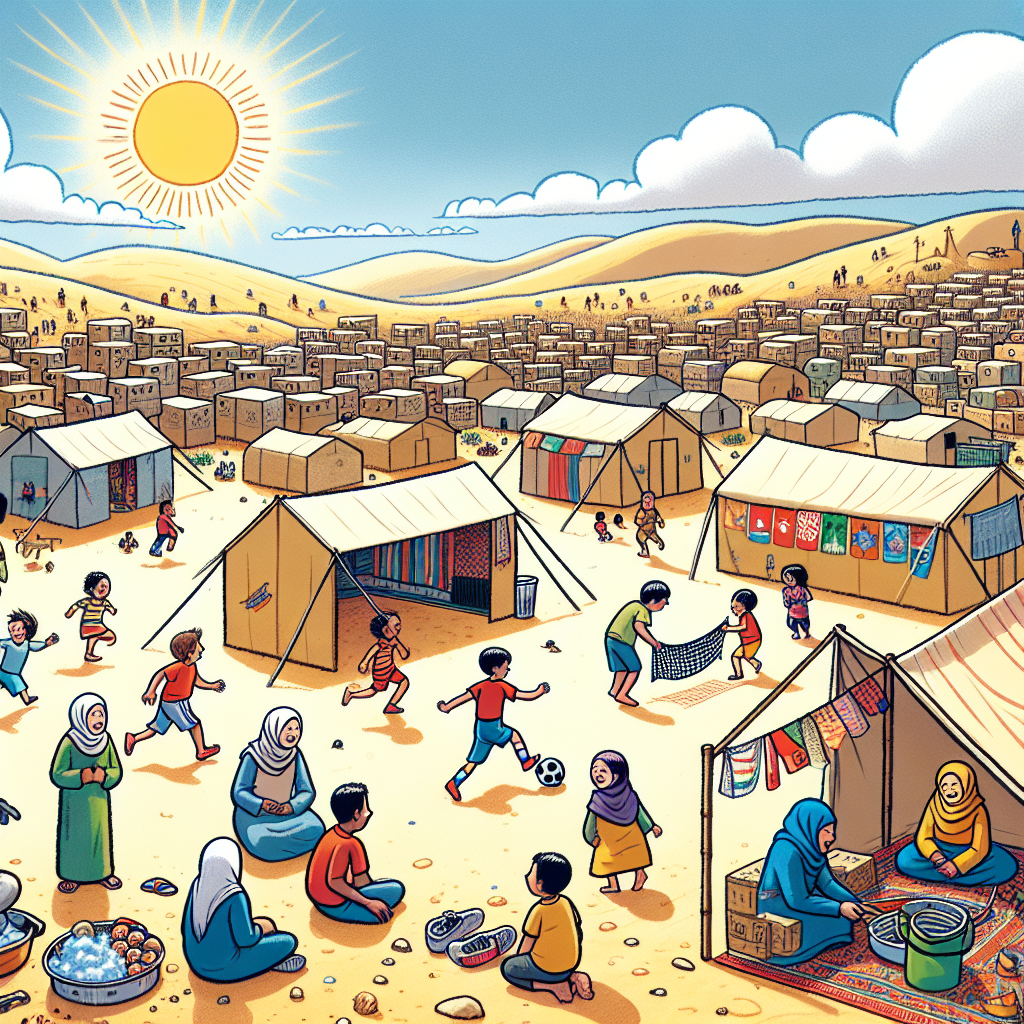The UN Refugee Agency (UNHCR) has reported that extreme weather events and natural disasters are exacerbating the plight of refugee and displaced communities worldwide, often forcing them to move and rebuild from scratch repeatedly. This observation follows a series of catastrophic floods, earthquakes, cyclones, storms, and heatwaves affecting various regions, including Africa, the Americas, and Asia.
Case Study: Brazil
In Brazil, recent floods in Rio Grande do Sul claimed at least 170 lives, displaced over 630,000 people, and affected 2.39 million individuals. Among those impacted were 43,000 refugees and others in need of international protection, including Venezuelans, Haitians, and Cubans. Refugees described losing their homes, belongings, and businesses, with some having to seek refuge on rooftops for days. As waters recede, many affected individuals are staying in emergency shelters or sharing homes with other families. With winter approaching, the situation is dire, especially with increasing health risks.
UNHCR's Response in Brazil
UNHCR is collaborating with Brazilian authorities to provide emergency shelter, identify vulnerable individuals, and offer support through counselling, referrals, and distribution of relief items. However, the needs are vast and growing.
Impact in Other Regions
Climate disasters have also struck Afghanistan, Bangladesh, and East Africa. In East Africa and the Great Lakes region, devastating floods between April and May have displaced hundreds of thousands, destroying homes and critical infrastructure in Burundi, Ethiopia, Kenya, Rwanda, and Somalia. Many refugees have been forced to relocate again in search of safety.
In Sudan and South Sudan, heavy seasonal rains pose a high risk of flooding in areas hosting thousands who have fled the ongoing conflict in Sudan. In Chad, heavy rains are damaging refugee shelters and infrastructure, adding to the challenges faced by the 600,000 Sudanese refugees.
UNHCR's Appeal
UNHCR is urgently appealing for nearly $40 million to assist 5.6 million refugees, returnees, internally displaced people, and local communities in Burundi, Ethiopia, Somalia, Rwanda, South Sudan, and Sudan. The funds will cover emergency relief items, cash assistance, and enhancements to water and sanitation services in displacement sites and host communities. Additionally, the appeal includes plans for rehabilitating and reconstructing critical infrastructure such as water systems, access roads, and flood protection dykes.
Call for Global Action
UNHCR continues to advocate for the inclusion of refugees and displaced populations in social protection schemes, contingency plans, and risk mitigation strategies. The Agency stresses the need for global action to support host communities and governments in building resilience against climate shocks.
Statement from UNHCR
"The frequency, intensity, and magnitude of these climate disasters are a warning signal to the world that should not be ignored," UNHCR stated. "While the climate crisis impacts everyone globally, the most vulnerable, who have contributed the least to climate change, are bearing the brunt. The world needs to act now to ensure these communities are not left behind."
As extreme weather events continue to devastate vulnerable communities worldwide, the international community must respond swiftly and effectively to provide the necessary support and resources. The plight of refugees and displaced people underscores the urgent need for comprehensive climate action and humanitarian assistance to build a more resilient and sustainable future for all.











